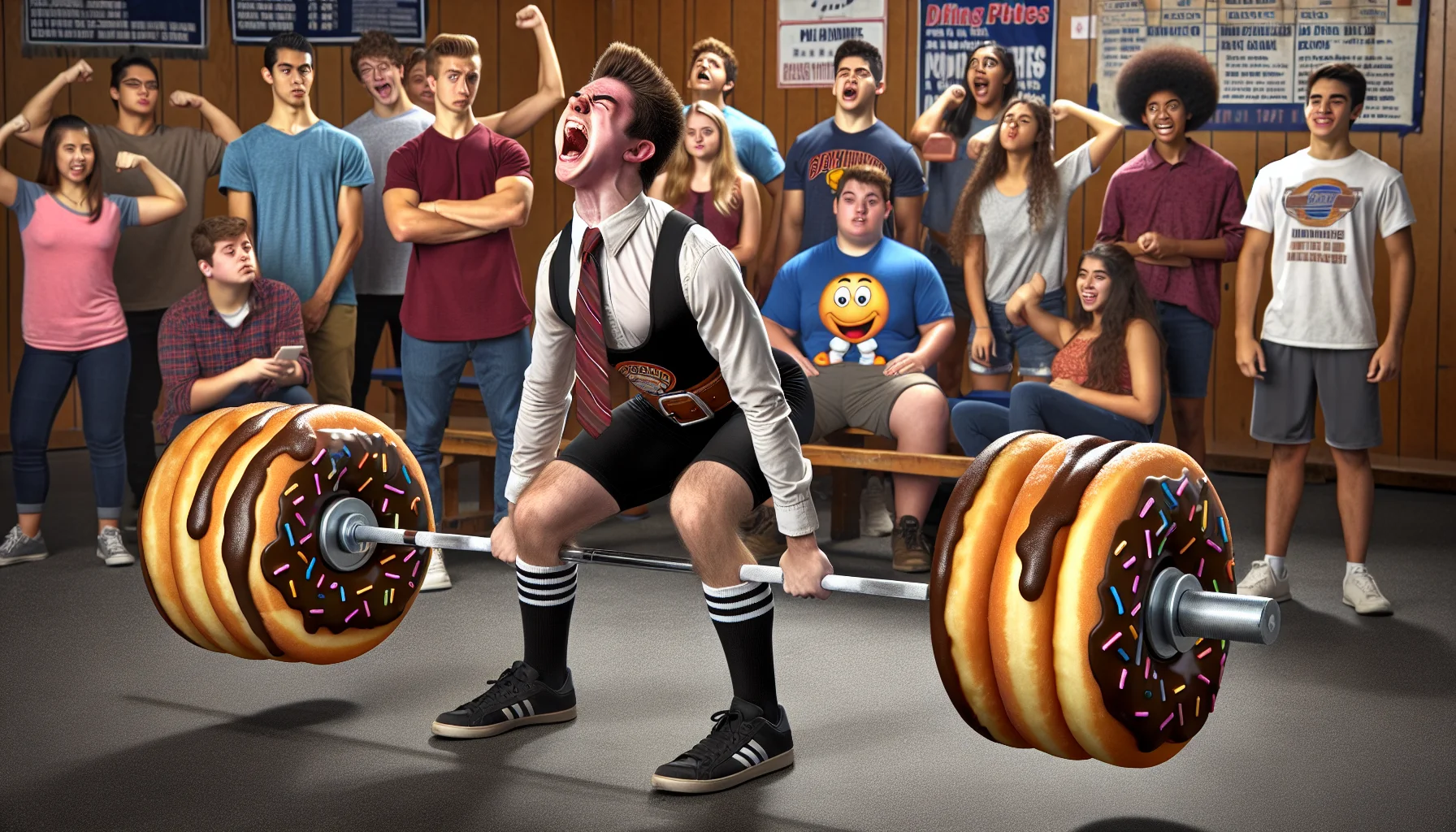Mhsaa powerlifting Quiz
Test Your Knowledge
Question of
Understanding MHSAA Powerlifting
MHSAA powerlifting refers to the competitive powerlifting events and activities organized under the auspices of the Michigan High School Athletic Association. This organization oversees high school athletics across Michigan, ensuring that sports activities, including powerlifting, are conducted in a safe, fair, and competitive manner. Powerlifting in the MHSAA context involves athletes competing in three main lifts: the squat, bench press, and deadlift. The significance of MHSAA powerlifting in high school athletics lies in its ability to offer students an avenue for physical development, discipline, and sportsmanship. It not only helps in enhancing the physical strength and endurance of the athletes but also instills in them a sense of responsibility, teamwork, and competitive spirit, which are valuable traits both on and off the lifting platform.
The Benefits of Participating in MHSAA Powerlifting
Participating in MHSAA powerlifting offers a wide array of benefits that extend beyond the physical realm. Physically, athletes experience significant improvements in strength, endurance, and overall fitness. This sport encourages individuals to push their limits, leading to enhanced muscular development and better body composition. Mentally, powerlifting fosters discipline, focus, and resilience. Athletes learn to set goals, work towards them diligently, and overcome barriers, which translates to improved mental toughness and stress management. Socially, MHSAA powerlifting provides a sense of community and belonging. Athletes become part of a supportive network, where they can share experiences, celebrate achievements, and motivate each other. This camaraderie not only enhances team spirit but also boosts confidence and social skills. In summary, MHSAA powerlifting is a multifaceted sport that offers comprehensive benefits, making it a worthwhile pursuit for those interested in personal development on all fronts.
Key Events and Competitions in MHSAA Powerlifting
- Regional Qualifiers - Various Dates and Locations
- State Championship - Typically Held in March
- Summer Strength Meet - Usually in July
- North/South State Meet - Dates Vary
- Invitational Meets - Throughout the Year
Training Tips for MHSAA Powerlifters
As an athlete involved in MHSAA powerlifting, it's crucial to focus on a balanced approach that encompasses training routines, nutrition, and recovery. For your training, incorporate a mix of compound movements such as squats, bench presses, and deadlifts with accessory exercises to build strength and address weaknesses. Ensure your routine includes adequate rest between heavy lifting days to allow for muscle recovery and growth. Nutrition plays a pivotal role in your performance and recovery. Aim for a diet rich in lean proteins, complex carbohydrates, and healthy fats to fuel your workouts and aid in recovery. Hydration is equally important, so drink plenty of water throughout the day. Lastly, never underestimate the power of recovery. Incorporate active recovery days, focus on getting enough sleep, and consider techniques such as stretching, foam rolling, and massage to aid in muscle recovery. Balancing these aspects of training, nutrition, and recovery will help you maximize your performance in MHSAA powerlifting competitions.
MHSAA Powerlifting Records and Achievements
| Weight Class | Lift Type | Athlete Name | Record |
|---|---|---|---|
| 123 lbs | Squat | John Doe | 400 lbs |
| 132 lbs | Bench Press | Jane Smith | 200 lbs |
| 148 lbs | Deadlift | Alex Johnson | 500 lbs |
| 165 lbs | Squat | Chris Lee | 450 lbs |
| 181 lbs | Bench Press | Pat Kim | 300 lbs |
| 198 lbs | Deadlift | Sam Rivera | 550 lbs |
How to Get Involved in MHSAA Powerlifting
High school students and coaches interested in participating in MHSAA Powerlifting can follow a few key steps to get involved. Firstly, ensure you meet the eligibility criteria set by the Michigan High School Athletic Association, which includes academic standards and attendance requirements. Next, registration is crucial; it typically involves filling out forms and paying any necessary fees, which can be done through your school’s athletic department. Additionally, engaging in proper training is vital for success in powerlifting. Schools often provide resources and coaching for athletes, but it’s also beneficial to seek out external training programs or workshops to enhance your skills and strength. Lastly, staying informed about competition schedules and rules will ensure you’re well-prepared for your powerlifting journey.












